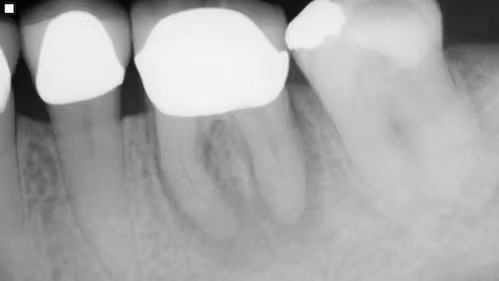- Home
- Medical news & Guidelines
- Anesthesiology
- Cardiology and CTVS
- Critical Care
- Dentistry
- Dermatology
- Diabetes and Endocrinology
- ENT
- Gastroenterology
- Medicine
- Nephrology
- Neurology
- Obstretics-Gynaecology
- Oncology
- Ophthalmology
- Orthopaedics
- Pediatrics-Neonatology
- Psychiatry
- Pulmonology
- Radiology
- Surgery
- Urology
- Laboratory Medicine
- Diet
- Nursing
- Paramedical
- Physiotherapy
- Health news
- Fact Check
- Bone Health Fact Check
- Brain Health Fact Check
- Cancer Related Fact Check
- Child Care Fact Check
- Dental and oral health fact check
- Diabetes and metabolic health fact check
- Diet and Nutrition Fact Check
- Eye and ENT Care Fact Check
- Fitness fact check
- Gut health fact check
- Heart health fact check
- Kidney health fact check
- Medical education fact check
- Men's health fact check
- Respiratory fact check
- Skin and hair care fact check
- Vaccine and Immunization fact check
- Women's health fact check
- AYUSH
- State News
- Andaman and Nicobar Islands
- Andhra Pradesh
- Arunachal Pradesh
- Assam
- Bihar
- Chandigarh
- Chattisgarh
- Dadra and Nagar Haveli
- Daman and Diu
- Delhi
- Goa
- Gujarat
- Haryana
- Himachal Pradesh
- Jammu & Kashmir
- Jharkhand
- Karnataka
- Kerala
- Ladakh
- Lakshadweep
- Madhya Pradesh
- Maharashtra
- Manipur
- Meghalaya
- Mizoram
- Nagaland
- Odisha
- Puducherry
- Punjab
- Rajasthan
- Sikkim
- Tamil Nadu
- Telangana
- Tripura
- Uttar Pradesh
- Uttrakhand
- West Bengal
- Medical Education
- Industry
Periapical lesion size not linked to success rate of different endodontic treatments

Periapical lesion size not linked to success rate of different endodontic treatments suggests a new study published in the Evidence-Based Dentistry.
The instant systematic review evaluated the effect of periapical lesion (PL) size on the success rate of different endodontic treatments, including root canal treatment (RCT), non-surgical retreatment (NSR), and apical surgery (AS).
Cohorts and randomized controlled trials investigating the outcomes of endodontic treatment of permanent teeth with PL and its size were identified electronically through Web of Science, MEDLINE, Scopus, and Embase databases. Two reviewers independently conducted the study selection, data extraction, and critical appraisal process. The quality of the included studies was evaluated using the Newcastle-Ottawa Scale and the 11-item Critical Appraisal Skills Program checklist for randomized controlled trials. The success rates of the endodontic treatments (small lesions and large lesions) were estimated using the rate ratios (RRs) with an associated 95% confidence interval (CI).
Results
Out of 44 included studies, 42 were cohort, and 2 were randomized controlled trials. Thirty-two studies had poor quality.
For the meta-analysis, five studies in RCT, 4 in NSR, and 3 in AS were considered.
The RR of the endodontic treatment success in PLs was 1.04 in RCT, 1.11 in NSR, and 1.06 in AS
Only sub-group analysis of long-term follow-up of RCT showed a significantly higher success rate in small lesions than in large lesions.
The researchers concluded that Considering the quality of studies and variation in outcomes and size classification, our meta-analysis demonstrated that the periapical lesion (PL) size had no significant effect on the success rate of different endodontic treatments.
Reference:
Baseri, M., Radmand, F., Milani, A.S. et al. The effect of periapical lesion size on the success rate of different endodontic treatments: a systematic review and meta-analysis. Evid Based Dent 24, 43 (2023). https://doi.org/10.1038/s41432-023-00851-1
Keywords:
Periapical, lesion, size, linked, success, rate, different, endodontic, treatments, Evidence-Based Dentistry, Baseri, M., Radmand, F., Milani, A.S.
Dr. Shravani Dali has completed her BDS from Pravara institute of medical sciences, loni. Following which she extensively worked in the healthcare sector for 2+ years. She has been actively involved in writing blogs in field of health and wellness. Currently she is pursuing her Masters of public health-health administration from Tata institute of social sciences. She can be contacted at editorial@medicaldialogues.in.
Dr Kamal Kant Kohli-MBBS, DTCD- a chest specialist with more than 30 years of practice and a flair for writing clinical articles, Dr Kamal Kant Kohli joined Medical Dialogues as a Chief Editor of Medical News. Besides writing articles, as an editor, he proofreads and verifies all the medical content published on Medical Dialogues including those coming from journals, studies,medical conferences,guidelines etc. Email: drkohli@medicaldialogues.in. Contact no. 011-43720751


